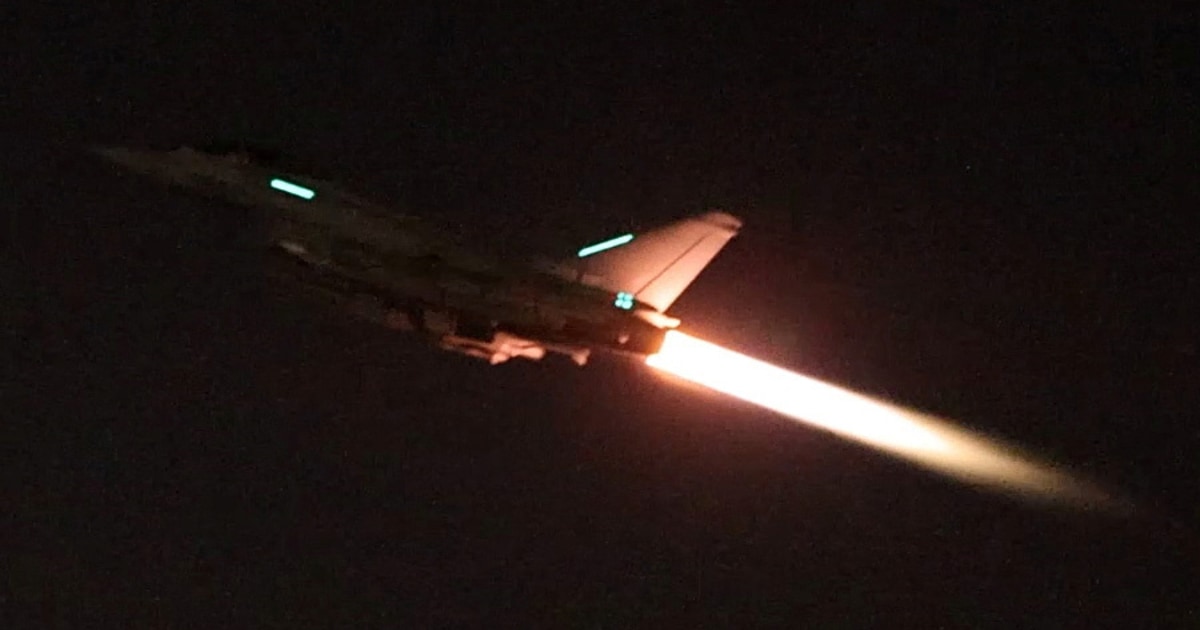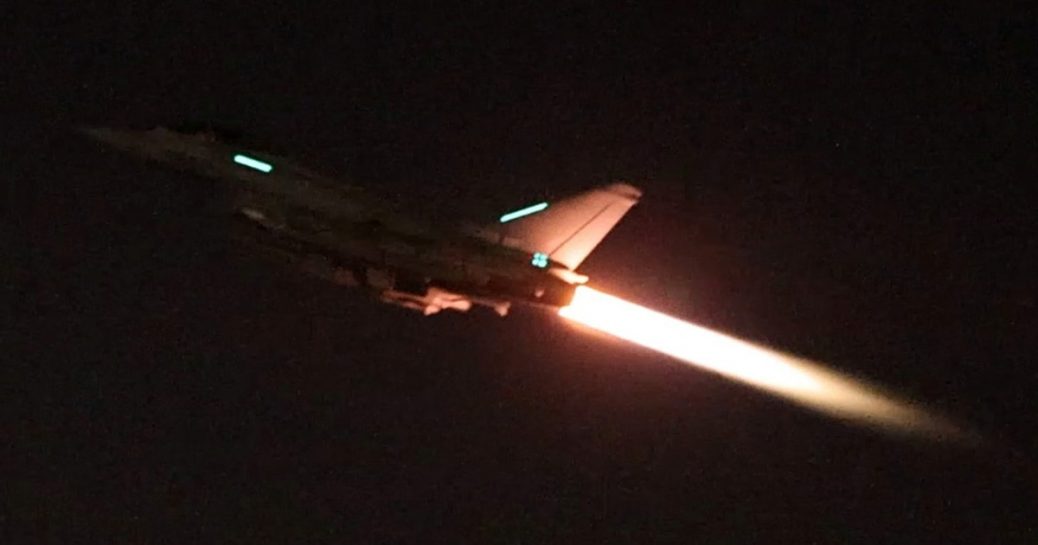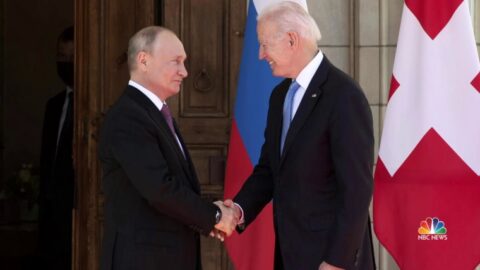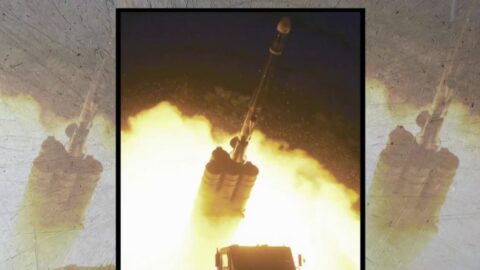
The U.S. and Britain launched military strikes against the Iran-backed Houthi rebels in Yemen, two U.S. officials said Thursday, after weeks of mounting attacks by the militant group in the Red Sea.
They targeted multiple locations with fighter jets and Tomahawks fired from Navy ships.
The Air Force said late Thursday that the strikes involved over 60 targets at 16 locations, and that over 100 “precision-guided munitions of various types,” were used.
The strikes were against “command and control nodes, munitions depots, launching systems, production facilities, and air defense radar systems,” U.S. Air Forces Central said in a statement.
President Joe Biden earlier Thursday said the strikes, which were supported by Australia, Bahrain, Canada and the Netherlands, targeted areas used by Houthi rebels to “endanger freedom of navigation in one of the world’s most vital waterways.”
“Today’s defensive action follows this extensive diplomatic campaign and Houthi rebels’ escalating attacks against commercial vessels,” Biden said in a statement Thursday evening. “These targeted strikes are a clear message that the United States and our partners will not tolerate attacks on our personnel or allow hostile actors to imperil freedom of navigation in one of the world’s most critical commercial routes.”
Biden also warned that he would “not hesitate to direct further measures to protect our people and the free flow of international commerce as necessary.”
A Houthi leader confirmed that Yemen’s capital, Sanaa, had been targeted.
“A brutal aggression against our country, for which they will pay absolutely,” Nasr Aldeen Amer, vice president of the Houthi Media Authority, said Thursday. “Without hesitation, and we will not back down from our position in supporting the Palestinian people, whatever the cost.”
British Prime Minister Rishi Sunak urged Houthi rebels to cease their aggression.
“Despite the repeated warnings from the international community, the Houthis have continued to carry out attacks in the Red Sea,” he said in a statement Thursday confirming the strikes.
“This cannot stand. The United Kingdom will always stand up for freedom of navigation and the free flow of trade,” he said.
Sunak said the strikes by the U.S. and U.K. were “limited, necessary and proportionate action in self-defence.”
U.S. Central Command said earlier Thursday that the Iranian-backed Houthis had fired anti-ship ballistic missiles from Houthi-controlled areas in Yemen into international shipping lanes in the Gulf of Aden.
No injuries or damage were reported, and a commercial vessel reported seeing the missile strike the water, the statement said. The attack was the group’s 27th on international shipping since Nov. 19, Central Command said.
The Houthis, from Yemen’s northwestern Saada province, rose to power as Arab Spring protests swept the region in 2011.
Three years later — with support from Tehran — the Houthis took control of the country’s capital, prompting a wider conflict with Iran’s regional rival, Saudi Arabia, and a situation in Yemen that the United Nations described as the “largest humanitarian crisis in the world.”
Although the U.S., Britain and several other countries backed the Saudi-led war, Saudi Crown Prince Mohammed bin Salman wound down the military operation last year and entered peace talks with the Houthis.
After Hamas attacked Israel on Oct. 7, the Houthis pledged support for the Palestinian militants and began attacking vessels in the Red Sea — despite demands from the U.S., France and other Western allies to halt the missile and drone attacks.
A spokesman for the Houthis has said they were targeting only ships with links to Israel — a claim that has been widely disputed — to pressure Israel into halting its war in Gaza.
In response, the U.S. and other countries dispatched warships to patrol the vital shipping corridor. U.S. helicopters fired on Houthis last week after they attacked a cargo ship.
During a visit to Saudi Arabia on Tuesday, Secretary of State Antony Blinken said that the group would face “consequences” if the attacks continued but that his “strong preference” was for the group to “get the message.”










Recent Comments